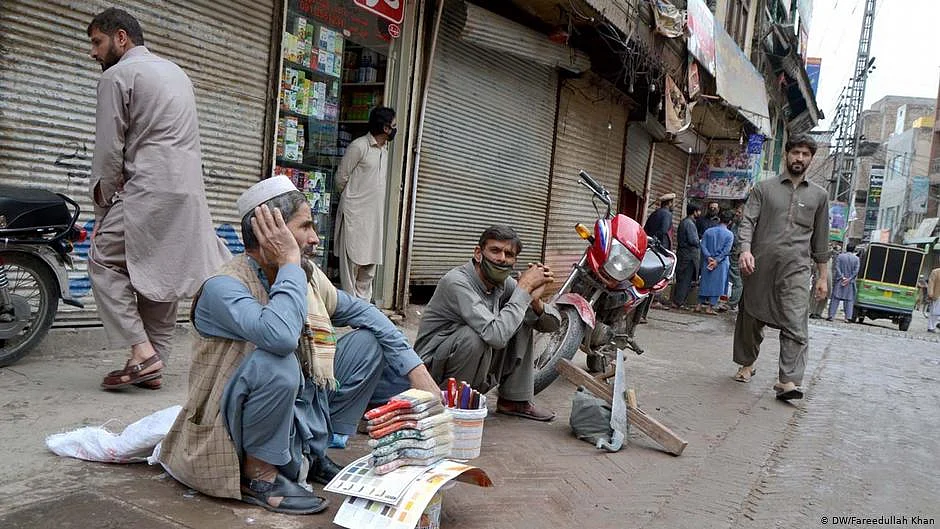Pandemic’s collateral damage
When we think about this pandemic, it’s not just the direct effects of virus we need to worry about, but also what follows<b> </b>

COVID-19 may kill many without even infecting them. We’ve hardly understood the pandemic’s collateral damage. The secondary impacts of COVID-19 — including a possible “hunger pandemic”, “lack of jobs”, “mental health tsunami”, "relationship vacuum" and "idle lives"— are worth taking seriously.
Many people are battling unemployment, stress, and uncertainty. Pandemic- caused unemployment, underemployment and the consequent increase in poverty would reduce the nutrition levels leading to reduced lifespans. The lockdowns have affected vulnerable and marginalised sections the most. Lockdowns and quarantines implemented by many countries to stop the spread of the Coronavirus have had disastrous impacts on the economies of low- and middle-income countries, by halting social and economic activity. Some 400 million workers in the informal sector in India are at risk of falling into poverty. According to an analysis of King’s College, London, and Australian National University, it could push an additional 8 per cent of our planet’s population into poverty — some 500 million people. That would effectively wipe out three decades of economic development.
The pandemic has not spared even the organised sector workers. The number of salaried people losing their jobs in India amid the Coronavirus pandemic has surged to 1.89 crore since April, with around 50 lakh jobs lost in July, according to data from the Centre for Monitoring Indian Economy (CMIE). These people who have lost their jobs have to stay idle at home. There are no other job opportunities elsewhere. They cannot go out and start any venture either in the present situation. These retrenched employees may not have near term financial stress to make both ends meet. But an idle man's mind is a devil's workshop. Having spent an active life all through, these retrenched employees having no work and may become emotional wrecks.
Economic distress, income inequalities and social discontent will rise over the next two years unless world leaders, businesses, and policy-makers work together to manage the fallout of the pandemic. As economies restart, there is an opportunity to embed greater social equality and sustainability into the recovery.
As per reports, COVID-19 lockdowns and the social distancing measures have increased anxiety and depression. People have become more fearful of routine hospital visits. People's mobility has plummeted and depression has soared. We’ve all been told to stay at home, but for millions of people, home is dangerous. “Every year, more than 10 million Americans experience domestic violence, and experts fear that the pandemic and the isolation necessary to combat it could drive those numbers even higher,” Anna North wrote for Vox. The situation is no different in India with respect to increased domestic violence. The pandemic has also exposed how the society devalues the lives of those it deems as “throwaway people” - the poor, sick, disabled, old and minority. COVID-19 pandemic has exposed and amplified the preexisting disparities. It’s precisely the populations that were already worse off — girls and women, LGBTQ people, people experiencing homelessness, poor people, migrant workers and minority communities — that are feeling the harshest effects of the current crisis.
The focus on the Coronavirus, coupled with logistical problems, is drawing resources from the fight against other serious diseases. Access to healthcare has been widely disrupted as well, with many routine immunisation programmes disrupted and primary healthcare services temporarily halted in many parts of the world in a bid to divert resources to stop the spread of COVID-19. Data collected by Gavi, UNICEF and others suggests that 80 million children under the age of one are at risk of diseases like measles and diphtheria because of disruptions related to the COVID-19 response. More than half (53%) of 129 countries saw moderate or total suspension of immunisation services in March and April. Cancer diagnostics and surgery have been disrupted by the response of healthcare services to the COVID-19 pandemic. Progression of cancers during delay will impact patient long-term survival.
With accelerated digitisation of the economy in the midst of the pandemic, cyber-attacks and data fraud are also major threats, while the breakdown of IT infrastructure and networks is also a top concern. For citizens, digital economy is akin to walking on the razor's edge. They are exposed to spam, phishing, cyder frauds and big-time surveillance.
We would do well to adopt a wider-angle view on human suffering. When we think about this pandemic, it’s not just the direct effects of virus we need to worry about, but also the secondary effects. We need visionary policy makers to take a full circle view of the pandemic effects and alleviate the damage.
(V Venkateswara Rao is a retired corporate professional and a freelance writer)
Follow us on: Facebook, Twitter, Google News, Instagram
Join our official telegram channel (@nationalherald) and stay updated with the latest headlines
